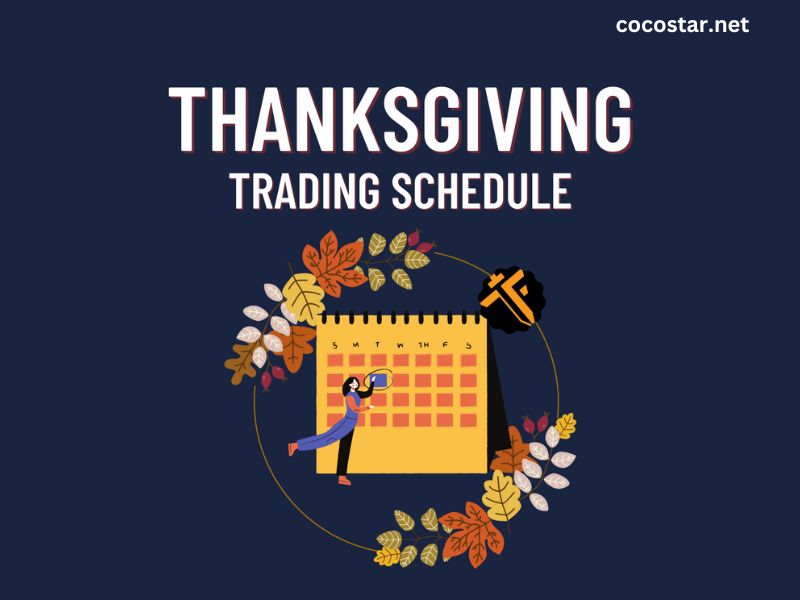As the holiday season approaches, many traders begin to wonder about the operational hours of various financial markets, particularly the Forex (foreign exchange) market. With Thanksgiving being a significant holiday in the United States, it’s crucial for Forex traders to understand how this holiday affects trading hours, market liquidity, and overall strategy.
Overview of Forex Trading
The Forex market operates 24 hours a day, five days a week, from Monday to Friday. It is a decentralized market where currencies are traded globally, making it accessible at almost any hour. The trading day is divided into three major sessions: the Asian, European, and North American sessions, which overlap at certain times to create increased liquidity.
However, the Forex market is not immune to the effects of public holidays. National holidays, especially in major economies, can significantly impact trading volumes and market activity.
Thanksgiving in the U.S.
Thanksgiving is celebrated on the fourth Thursday of November in the United States. It is a time when families come together to give thanks and enjoy a feast. This holiday leads to closures of many businesses, including banks and financial institutions. As a result, Forex traders need to adjust their expectations and strategies accordingly.
Forex Market Hours on Thanksgiving
On Thanksgiving Day, the Forex market remains open. However, the dynamics of trading change significantly. Many traders, especially in the U.S., take the day off to celebrate with family and friends. This reduced participation can lead to lower trading volumes, which may affect price volatility.
The following outlines the typical schedule for the Forex market during the Thanksgiving holiday:
- Regular Trading Hours: The Forex market operates normally on Wednesday before Thanksgiving, starting from 5 PM EST on Sunday until 5 PM EST on Friday.
- Thanksgiving Day (Fourth Thursday in November):
- The market remains open, but many traders, especially in the U.S., will be away from their trading desks.
- Typically, trading volumes decrease significantly as the day progresses.
- Post-Thanksgiving (Black Friday):
- The Forex market will continue to operate, but it may also see reduced activity.
- Some traders may resume trading later in the day or wait until the following Monday.
Impact on Trading
- Reduced Liquidity: With many traders absent, liquidity can drop significantly. This reduction can lead to wider spreads (the difference between the bid and ask prices) and potential slippage when placing orders. Traders need to be cautious, especially when employing strategies that require high liquidity.
- Increased Volatility: Although liquidity is lower, this does not necessarily mean the market will be stable. Occasionally, major news events or economic data releases can lead to sudden price movements. Traders should stay aware of any scheduled news releases that could impact the market during this time.
- Market Sentiment: The overall sentiment in the Forex market can be affected by the general mood surrounding the holidays. Traders might react differently, leading to unpredictable market behavior. This sentiment can influence currency pairs, especially those tied to the U.S. dollar.
Strategies for Trading on Thanksgiving
Given the unique circumstances surrounding Thanksgiving, here are some strategies that Forex traders might consider:
- Adjust Position Sizes: With reduced liquidity, it’s advisable to adjust position sizes. Smaller trades can mitigate risk and help manage potential slippage in your orders.
- Use Limit Orders: Instead of market orders, consider using limit orders to better control the entry and exit points of your trades. This can help prevent unexpected price changes due to lower liquidity.
- Monitor Economic News: Keep an eye on any scheduled economic news releases. These can create volatility in the market, and being informed allows traders to prepare for potential market movements.
- Plan for a Slow Day: If you choose to trade on Thanksgiving, be prepared for a slower market. Set realistic expectations and be patient, as fewer trades may occur throughout the day.
- Take a Break: If possible, consider taking the day off from trading. Enjoying the holiday and spending time with family can provide a much-needed break from the trading routine, allowing for a refreshed mindset when returning to the markets.
What About Other Holidays?
Thanksgiving is not the only holiday that can affect Forex trading. Other holidays, such as Christmas and New Year’s, can also lead to similar patterns of reduced trading activity. Here’s how they generally compare:
- Christmas: The Forex market remains open on Christmas Eve but typically experiences reduced trading hours and volumes. Many traders close their positions early, leading to a similar low liquidity environment.
- New Year’s Day: The Forex market is closed on January 1st. However, trading resumes shortly after, often with a surge in activity as traders return to the market.
- National Holidays in Other Countries: Major holidays in other countries can also affect Forex trading. For instance, when the U.K. celebrates a bank holiday, trading in GBP pairs may see reduced activity. Understanding the holidays in different regions can help traders anticipate market movements.
Conclusion
In summary, while the Forex market remains open on Thanksgiving, traders should be aware of the reduced liquidity, potential volatility, and overall market sentiment during the holiday. Adjusting strategies to accommodate these changes can help traders navigate the complexities of trading on this day.
For many, Thanksgiving is a time for family and reflection, and taking a break from trading can provide valuable mental clarity. Whether you choose to trade or take a holiday, understanding the dynamics of the Forex market during Thanksgiving will enhance your trading experience and decision-making.
As the holiday season unfolds, it’s essential to stay informed, remain cautious, and enjoy the festivities. Happy Thanksgiving to all traders!



